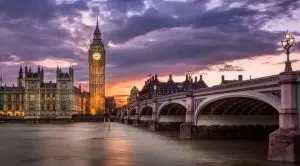 The Chair and Vice-chair of the all-party parliamentary group against gambling-related harm – Carolyn Harris and Sir Iain Duncan Smith, respectively – have said British people’s lives and well-being are more important than the good financial prospects for the local gambling industry.
The Chair and Vice-chair of the all-party parliamentary group against gambling-related harm – Carolyn Harris and Sir Iain Duncan Smith, respectively – have said British people’s lives and well-being are more important than the good financial prospects for the local gambling industry.
The two of them commented on the critical opportunity for the UK Government to present stricter regulation for the local gambling sector 16 years after the last Gambling Act was unveiled, saying that the White Paper framing of the country’s gambling legislation was long overdue. According to both Ms Harris and Sir Iain Smith, the Government should seize the critical opportunity and impose further crackdown measures on the increasing growth of the local betting and gambling sector.
For The Times, the two major officials of the anti-gambling all-party parliamentary group reminded that 55,000 British children are already being categorised as gambling addicts, while potentially 1 in 4 Brits who gamble are being negatively affected by it. Problem gambling even took victims, with some people taking their own lives as a direct result of their incapability of dealing with compulsive gambling and the harm originating from it.
Although the UK gambling legislation obviously needs some significant changes, the local gambling sector is trying to convince British legislators that it is able to effectively regulate itself. So far, some of the largest operators have agreed to voluntarily make payments for problem gambling education and treatment.
UK Gambling Sector Should Be Subject to Stricter Rules and Regulation, Campaigners Say
 Members of the all-party parliamentary group against gambling, however, do not believe the local gambling industry is able to self-regulate efficiently, Ms Harris and Sir Iain Duncan Smith noted.
Members of the all-party parliamentary group against gambling, however, do not believe the local gambling industry is able to self-regulate efficiently, Ms Harris and Sir Iain Duncan Smith noted.
According to the anti-gambling campaigners, who have been insisting on stricter rules to be imposed on the sector, there should be a gambling losses limit of no more than £100 a month, with some affordability checks made for customers who are willing to place larger bets. Campaigners also claim that the gambling industry still keeps many of the most harmful practices in place, including free bets, various enticements seeking to lure people into gambling more money, as well as VIP rooms.
Ms Harris and Sir Iain Smith further explained for The Times that the gambling industry of the UK continues to withstand the stricter rules implemented by the Government on gambling adverts. Although the major companies operating in the sector have voluntarily agreed to a whistle-to-whistle gambling advertising ban that prevents them from displaying gambling commercials during live sports events, they have not done much to reduce the number of ads seen in and around matches on sports clubs’ kits, magazines and hoardings.
UK gambling companies have claimed that further restrictions on the sector will fend off customers, driving them to black market operators who not only do not pay taxes but also offer services that could result in serious harm for users. The all-party parliamentary group, however, disagrees. The Chair and Vice-Chair of the group claim that the vast majority of gamblers actually place bets on regulated sites, while unregulated ones seem to be used as the last resort for those who are already dealing the compulsive gambling and suffer from significant harm associated with their gambling habits, or to players who are trying to circumvent self-exclusion.
After they shared their major concerns associated with the UK gambling sector with The Times, Ms Harris and Sir Iain Smith noted they were willing to see the sector being put under the right protections in order to prevent harm to be inflicted on customers. According to the campaigners, the country’s Government should take the unique chance to deliver the reforms and make people’s lives a priority rather than the financial prospects of the industry.
- Author


